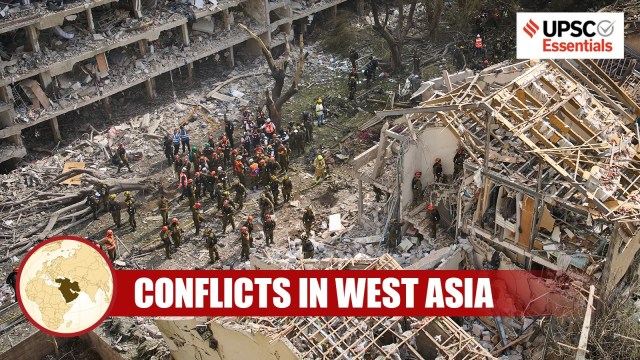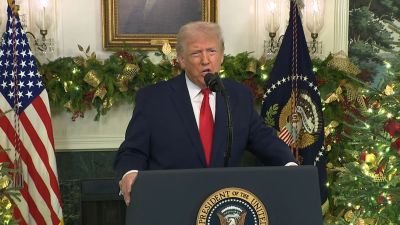The US attack on Iran’s three nuclear facilities – Natanz, Fordow, and Isfahan – has escalated tensions in the ongoing Israel-Iran war, mounting fears of a wider regional conflagration as Iran weighs its military options for retaliation. Adding to the volatility of the situation, President Donald Trump has hinted at the possibility of regime change in Iran.

Israel, too, has reported over 20 deaths and scores of injuries. A large number of civilians have been affected on both sides, with many civilian installations, including energy infrastructure, ports, media houses and hospitals being hit by both sides.
When Israel started the military attacks against Iran, Prime Minister Benjamin Netanyahu stated that the objective of the operation was to destroy Iran’s nuclear programme, which has long been a bone of contention between the two regional powers. Israel has also targeted some of Iran’s nuclear sites, such as in Natanz, Fordow and Arak. Meanwhile, Iran has been able to consistently breach the Israeli air defence, causing damages across Israel.
Regime change in Iran
As the Israel-Iran conflict continues to escalate, the international discourse has shifted from the Iranian nuclear programme to regime change in Tehran. The issue has gained global attention mainly due to the statements of Trump, and Israeli leaders, including Netanyahu, who have on several occasions articulated that a regime change in Tehran is the only way to resolve problems facing the region.
Israel has for long accused Iran of flaming fires in the region by arming proxies such as Hezbollah in Lebanon and Hamas in the Palestinian Territories, who have often threatened Israeli security.
Israel also suspects Iran of backing Hamas’s attacks in Israel on October 7, 2023, that triggered the Israel-Hamas war in the Gaza Strip, which has continued for sixteen months now. Israel also views Iran’s nuclear programme and its regional military pursuits as an existential threat. Prior to the US joining the war, there have been reports about Arab Gulf countries trying back-channel diplomacy to prevent the expansion.
Story continues below this ad
US attack on Iran echoes troubled past
With the US eventually joining the Israeli war against Iran and Trump’s hint at regime change, it might be useful to recall that similar US military endeavours in the past have spelt disaster for West Asia and have proven costly for the US as well.
The post-9/11 “war on terror” had led the US to first attack Afghanistan in 2001 and then enter Iraq in 2003. On both occasions, the US military met with early success, removing the Taliban regime in Afghanistan and toppling Saddam Hussein in Iraq in quick times. However, the US got embroiled in long wars in both countries with mounting economic and human costs.
In the case of Iraq, it finally withdrew its troops in 2011 under the Obama administration, only to be drawn back due to the rise of the Islamic State in the wake of the 2011 Arab Spring. The American intervention in Afghanistan proved costlier, with the exit completed in 2021, only for the Taliban to take back control of the country.
More recently, the US-led NATO intervention in Libya in 2011 spelt disaster for the country. It is still facing the brunt of a civil war endangering security in North Africa. Nonetheless, the past experiences and the opposition among his support base to the US getting involved in foreign wars couldn’t deter Trump.
Story continues below this ad
Cost of prolonged war
With the US now involved in the war, the region is likely to pay a heavy price. Despite being a weaker military power compared to the US and Israel, Iran is unlikely to capitulate easily. Even in a scenario where the major regime figures perish in the war, the likelihood of the war engulfing the entire Persian Gulf and West Asia region cannot be ruled out, especially as Iran enjoys the support of armed militias in countries like Yemen, Iraq and Lebanon.
Moreover, as Iran has shown in its conflict with Israel, it can reach long-distance targets, which means the US bases in the region could come under Iranian attacks. Further, Iran may even target oil and gas installations in the area to disrupt the global energy market and leverage it to its advantage. Iran’s Parliament has already approved the closing of the Strait of Hormuz, which can drastically affect the global petroleum supply chain. Additionally, all parties involved will have to pay a huge economic and humanitarian cost if the war is prolonged.
Regional response
Given the above scenario, the regional countries, especially the GCC States, have been forthcoming in expressing their concerns over the possibility of escalation and expansion of the Israel-Iran war. Although none of the regional countries, including Saudi Arabia, Egypt, Jordan, the UAE, Qatar, Bahrain and others, have been comfortable with the idea of Iran acquiring nuclear weapons, they have maintained that a diplomatic approach might be more fruitful instead of opening a war front.
This is mainly because the regional countries are at a critical juncture of their developmental journey, prioritising economic diversification and social opening in preparation for a post-oil future. Peace, stability, and security are prerequisites for them to achieve this. The regional countries, therefore, fear that if the Israel-Iran war spirals into a wider conflict with now the US involved in it, it will push the entire region into instability.
Story continues below this ad
Post Read Questions
What do America’s past interventions in Afghanistan, Iraq, and Libya tell us about the risks in Iran?
Can the Israel-Iran conflict be contained, or is a wider West Asian conflagration inevitable? What role, if any, can international diplomacy play in de-escalating the crisis?
What are the risks of attacking active nuclear sites like Natanz, Fordow, and Arak?
Despite its weaker military capabilities, how is Iran attempting to deter or outmaneuver the US-Israel alliance?
Story continues below this ad
Read other articles from the series on Conflicts in West Asia:
Conflicts in West Asia: Post-Assad Syria grapples with deep divides
Conflicts in West Asia: India’s trade and diaspora at risk amid prolonged Gaza War
Conflicts in West Asia: Implications of escalating Gaza war for India
Conflicts in West Asia: Israel-Iran war of abrasion
Story continues below this ad
Conflicts in West Asia: A brief history of the Israel-Palestine conflict
Conflicts in West Asia: Iraq in disarray
Conflicts in West Asia: Israel-Hamas war and the Yemen quagmire
Conflicts in West Asia: Kurds and their struggle with statelessness
Share your thoughts and ideas on UPSC Special articles with ashiya.parveen@indianexpress.com.
Story continues below this ad
Subscribe to our UPSC newsletter and stay updated with the news cues from the past week.
Stay updated with the latest UPSC articles by joining our Telegram channel – IndianExpress UPSC Hub, and follow us on Instagram and X.


































